Search Results
Showing results 181 to 200 of 325
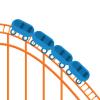
Roller Coasters
Source Institutions
In this design challenge, learners will create their own roller coaster using household objects for the track and a marble or small ball as their cart.
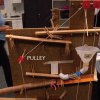
Build Your Own Marble Machine
Source Institutions
In this activity, learners will build a ball run contraption.

Ice Cream Freeze
Source Institutions
In this fun and delicious chemistry activity (page 1 of the PDF), learners will explore the difference between physical and chemical change by making homemade ice cream.
Windmills
Source Institutions
In this physics activity (page 8-9 of the PDF), learners will explore wind energy. They will build their own windmill and see how energy from wind can be converted into a useable form.
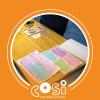
Watercolor
Source Institutions
In this activity, learners will use chemistry to create a night sky watercolor painting. They will experiment to learn the effects of mixing crayon, salt, and lemon juice with water color paints.
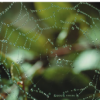
Stick to It: Adhesion II
Source Institutions
Water sticks to all kinds of things in nature — flowers, leaves, spider webs - and doesn't stick to others, such as a duck's back.
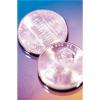
What's in a Penny?
Source Institutions
In this chemistry activity, learners use chemical reactions to observe the composition of an alloy.
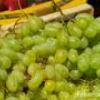
Push Me a Grape
Source Institutions
In this physics activity, learners experiment with the attractive and repulsive power of magnets.
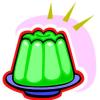
Shimmering Lenses
Source Institutions
In this activity, learners use Jell-O to explore lenses. Learners cut Jell-O into convex and concave lens shapes and examine how light exits each lens in a darkened room.
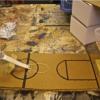
Finger Basketball
Source Institutions
In this activity, learners build mini-basketball courts using cardboard and measuring spoons. Use this activity to introduce learners to catapults, forces, and levers.
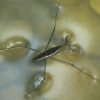
Breaking the Tension: Surface Tension 1
Source Institutions
Learners explore how the attractive forces between water molecules create surface tension and allow certain objects to float on the surface of water.
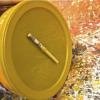
Rolling Returns
Source Institutions
In this activity, learners build a special rolling can that returns back to you when you push it forward. Use this activity to demonstrate the transfer of energy between kinetic and potential energy.
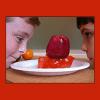
Space Jell-O
Source Institutions
Albert Einstein proved that space bends around anything that has mass. This activity uses Jell-O's ability to bend around objects as a model for space bending around planets and stars.
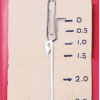
Rubber Band newton Scale
Source Institutions
In this activity, learners make a simple spring-like scale using a rubber band instead of a spring, and calibrate the scale in newtons (N).
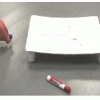
Rutherford Roller
Source Institutions
In this activity, learners make a black box device that serves as an excellent analogy to Rutherford's famous experiment in which he deduced the existence of the atomic nucleus.
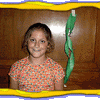
Make a DNA Model
Source Institutions
In this activity, learners make a 3-D model of DNA using paper and toothpicks. While constructing this model, learners will explore the composition and structure of DNA.
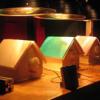
Aviary Architect
Source Institutions
In this activity, learners are challenged to design, build and test a birdhouse that will stay cool in the sun.
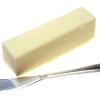
Conduction Countdown
Source Institutions
In this quick SciGirls activity (page 1 of the PDF under SciGirls Activity: Doghouse Design), learners will be introduced to the concept of thermal conductivity.
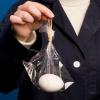
Egg Bungee
Source Institutions
Learners attach an egg to a rubber-band bungee cord and drop the egg.
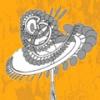
Kinetic Sculpture
Source Institutions
In this design challenge activity, learners build a tower that’s at least 12 inches high with two or more parts that move (spin, sway, or flap) in the wind.
